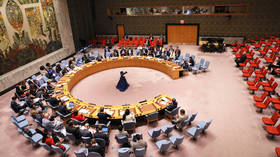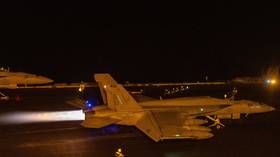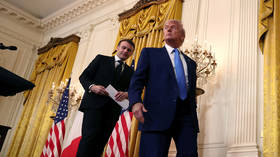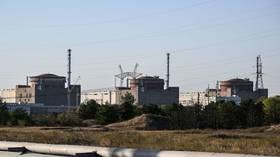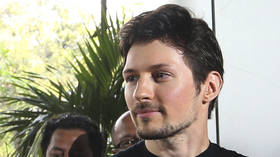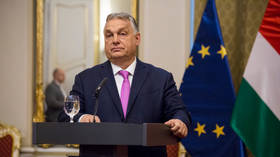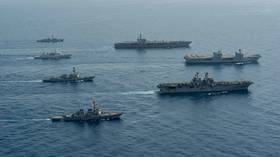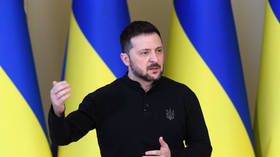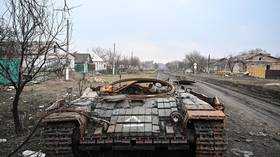UN finishes inspection of Ukrainian nuclear sites
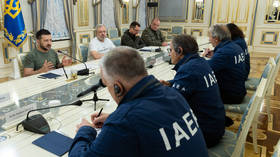
The International Atomic Energy Agency (IAEA) claimed on Thursday that its inspectors found no “undeclared” nuclear materials or activities after visiting three Ukrainian research facilities. Kiev immediately announced that this was proof Russian claims about a potential Ukrainian “dirty bomb” plot were unfounded.
Inspectors dispatched “at the request of the Government of Ukraine,” travelled to the Institute for Nuclear Research in Kiev, the Eastern Mining and Processing Plant in Zhovti Vody, and the Pivdenmash factory in Dnieper, the IAEA said in a statement.
“Our technical and scientific evaluation of the results we have so far did not show any sign of undeclared nuclear activities and materials at these three locations,” said IAEA Director General Rafael Grossi.
The agency also took environmental samples at three locations, and will report on the results “as soon as possible,” Grossi added.
Ukraine requested the IAEA visit in writing last month, after Moscow accused Kiev of using the three locations for the purposes of a nuclear provocation. Russian envoy to the UN Vassily Nebenzia said in a letter to the Security Council that Ukrainian President Vladimir Zelensky directly ordered the facilities to develop a “dirty bomb” and that plans to create such a device were “at their concluding stage.”
The US, the UK, and France immediately rejected Russia’s claims, even before the IAEA mission was dispatched to Kiev. Russian Foreign Minister Sergey Lavrov condemned the “unfounded denials” and said the Western governments were not engaged in “serious conversation.”
Ukrainian Foreign Minister Dmitry Kuleba hailed the IAEA statement, tweeting a message of thanks to Grossi for “excellent and prompt cooperation which helped counter Russian falsehoods.”
Grossi said his inspectors were “given unfettered access” and were able “to carry out all activities that the IAEA had planned to conduct” on the sites. The agency’s conclusion was based on its own research, as well as the “information provided by Ukraine,” the IAEA said.
The Russian mission to the UN had warned the IAEA that Ukraine’s efforts could involve other facilities, not just the three scheduled for inspection.
“We told IAEA Director General Rafael Grossi that he must be vigilant, because these facilities are not the only ones where [a dirty bomb] can be produced. Ukraine has the potential for this, so the agency must be vigilant,” Nebenzia told journalists on October 28.
